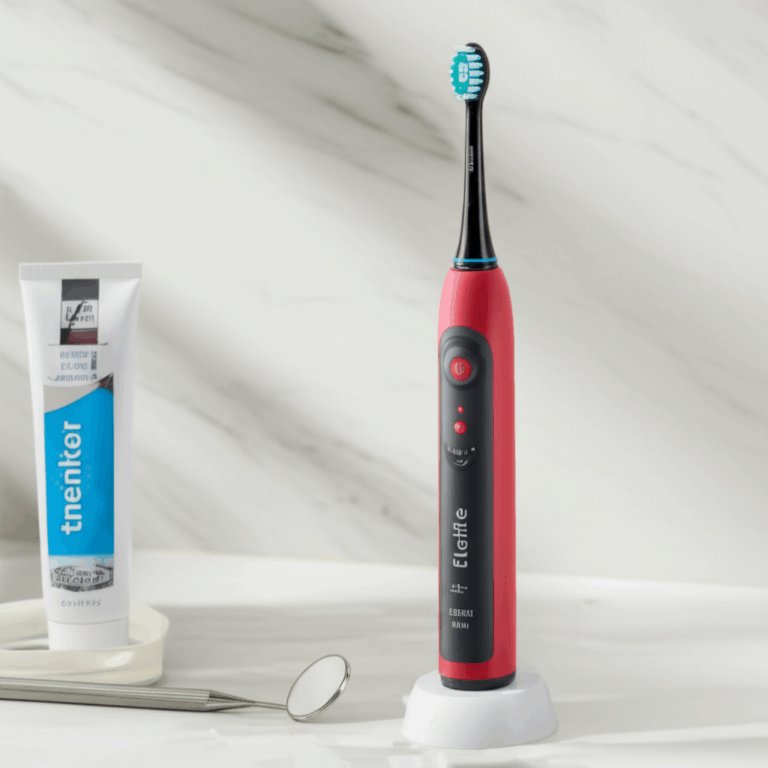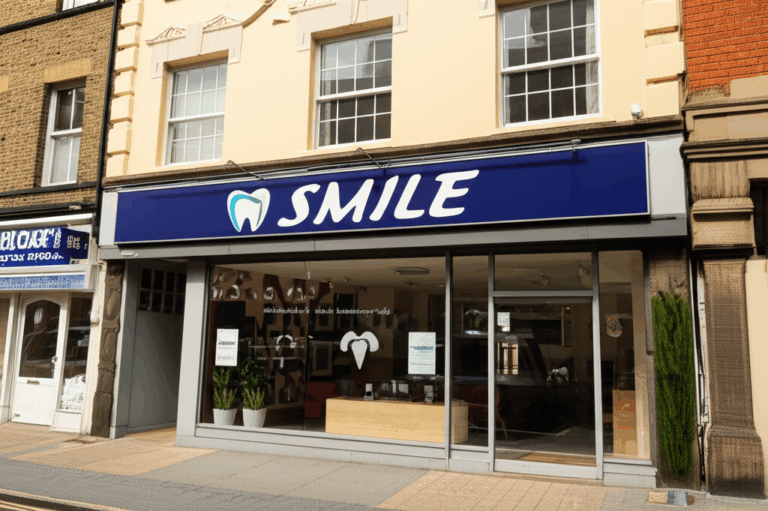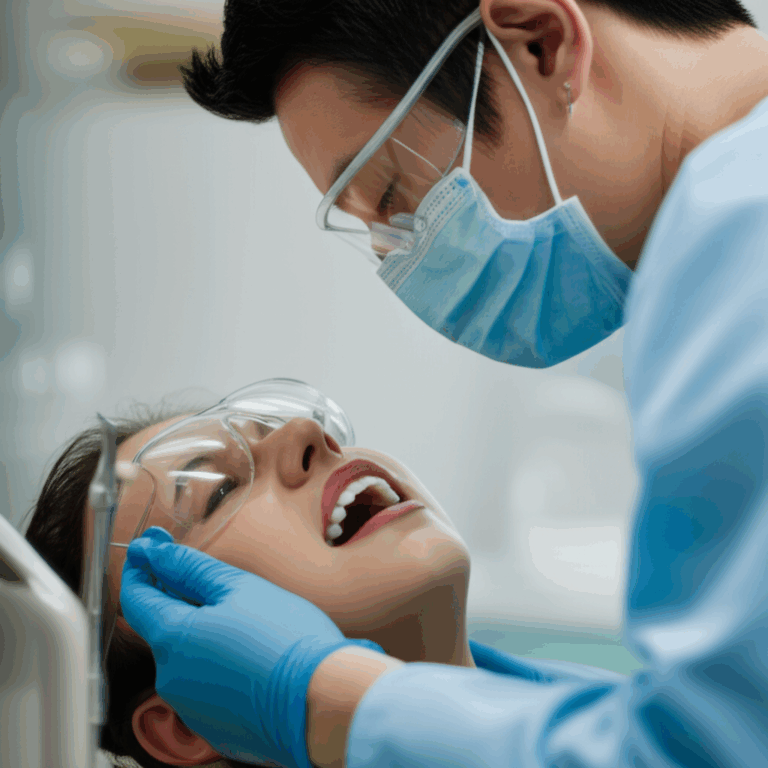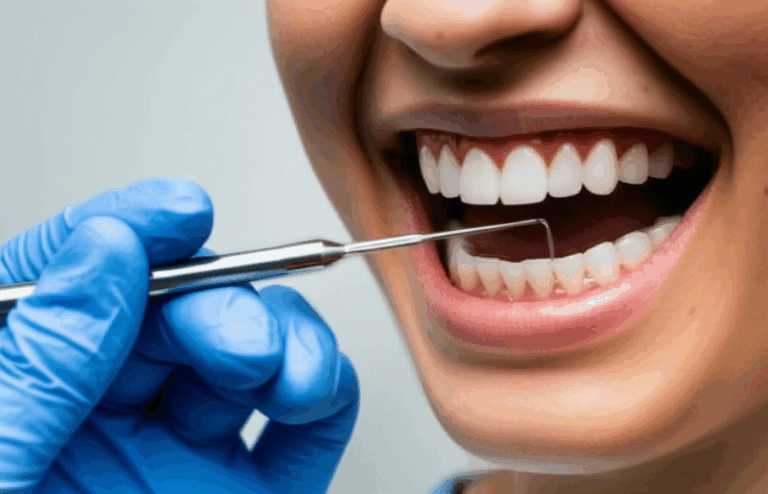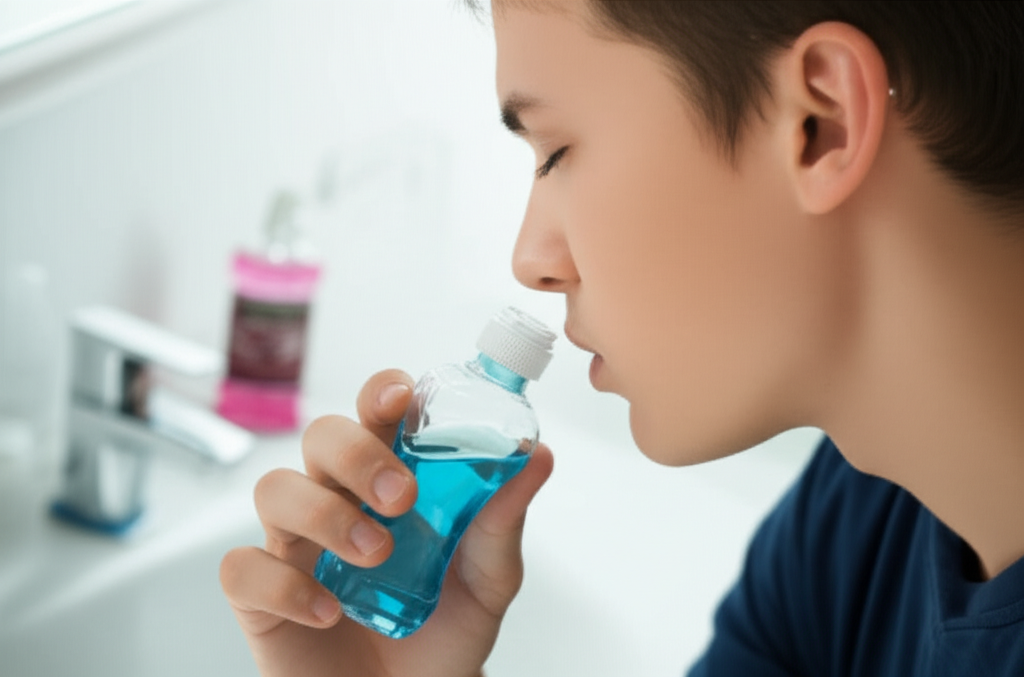
How Dentists Really Detect Smoking (and Why Honesty Is Your Best Policy for Oral Health)
That uneasy feeling right before a dentist visit—let’s be real, most of us know it. If you’ve ever worried, “Can my dentist tell if I smoke? What if I try to hide it?”—you’re not the only one. Many feel nervous about being judged or having uncomfortable talks about smoking. It’s easy to understand why, and it happens to lots of people.
Here’s the real deal: Dentists can usually pick up on the signs that someone smokes—even if you try some quick tricks to hide it. But spotting it isn’t the whole story. Your dentist isn’t there to judge you, but to help keep your mouth and your body as healthy as possible. In this guide, we’ll show how dentists can tell if you smoke, why being honest is best, and what you can do to take care of your teeth and gums—without scare tactics or lectures, just clear answers and support.
In This Article
- Introduction: The Reality of Hiding Smoking from Your Dentist
- How Dentists Detect Smoking (Even If You Try to Hide It)
- The Hidden Dangers of Concealing Your Smoking Habit
- Why Your Dentist Needs to Know: Health Over Judgment
- Instead of Hiding: Proactive Steps for Smokers to Protect Their Oral Health
- Conclusion: Your Oral Health Deserves Honesty
Introduction: The Reality of Hiding Smoking from Your Dentist
Are you worried your dentist will know you smoke? Don’t worry—you’re not alone. Plenty of people try to hide their smoking, hoping to avoid a talk in the dental chair. Maybe you’re worried about getting a scolding. Maybe you think it’s nobody’s business. Maybe it just feels awkward.
But here’s the truth: most dentists can spot signs of smoking pretty easily, and hiding it might actually hurt you more—in ways that affect both your health and your wallet.
Let’s find out how dentists know, the real risks of keeping quiet, and how being honest can help you take control of your dental health without worrying about being shamed.
How Dentists Detect Smoking (Even If You Try to Hide It)
So what gives you away? Is it the yellow stains, the smell, or something only dentists know about? Let’s break down what your dentist and their team notice—yes, including smells—when you sit down for your visit.
What Dentists See in Your Mouth
Dentistry is sort of like being a detective. When you open your mouth, your dentist isn’t just looking for cavities; they’re looking for typical “smoking signs.” Here’s what they look for:
- Nicotine and Tar Stains: These are yellow, brown, or even black marks on your teeth—usually worst on the inside. They show up on fillings, fake teeth, bridges, and even dentures.
- Gum Changes (Smoker’s Melanosis): You might see darker spots—almost like freckles—on your gums or the inside of your cheeks. Dentists call this smoker’s melanosis.
- Odd White or Red Patches (Leukoplakia & Erythroplakia): These can sometimes turn into cancer, and they’re a lot more common for people who use tobacco.
- Gum Shape & Feel: Smokers often have gums that are pulled away from the teeth, swollen, or with “flattened” tips. Weirdly, gums might bleed less during cleaning, which doesn’t mean they’re healthy—nicotine shrinks your blood vessels.
- Dry Mouth: Smoking dries out your mouth, leading to less spit and a dry look.
- Smoker’s Palate: The roof of your mouth might show rough, white, or bumpy areas—a classic sign of smoking.
What Dentists Smell
You might brush and rinse for ages before seeing your dentist, but the smell from smoking (bad breath) is tough to hide. The smell comes from your mouth and from chemicals in your lungs, so mints and gum don’t work for long.
It’s not just your breath, either. The tobacco smell can stick to your hair, clothes, and even skin.
How Your Mouth Heals
Dentists also notice how your body heals after regular cleanings or other dental work—because smoking slows everything down and changes the way your mouth repairs itself.
- You heal slower after things like tooth removal or gum work
- You might have worse gum disease that’s hard to fix
- Your jawbone can change in ways visible on X-rays
- More plaque and tartar, even if you brush and floss a lot
Other Clues Dentists Notice
- Brown stains on your fingers or nails from holding cigarettes
- The overall look and health of your mouth, and a bigger chance of weird bumps or lumps
What About Vaping and E-Cigs?
Think vaping hides your habit from your dentist? Not really. Even though some signs are different, vaping can still make your gums red, cause dryness, and makes changes your dentist will notice. Some vape juice even stains your teeth in a different way.
The Hidden Dangers of Concealing Your Smoking Habit
Alright, dentists can spot a smoker easily. But if you cover it up and they don’t bring it up—what could go wrong? A lot more than you might think.
1. Dentists Might Miss What’s Really Going On
If your dentist doesn’t know you smoke, they can’t properly judge your risk for things like gum disease, mouth cancer, or healing problems after treatment. They might think problems are just “bad luck” or “genes,” and miss early warning signs.
Missing early mouth cancer is especially risky. Tobacco users are much more likely to get mouth cancer, and results are much better if dentists find it fast.
2. You Might Get the Wrong Treatment
Thinking of getting an implant or bridge without telling your dentist you smoke? Here’s the truth—smokers’ implants fail a lot more. Failed implants mean pain, more visits, more money spent, and worse results.
Same thing with healing after removing a tooth or getting gum treatment. Smokers are way more likely to get painful problems like “dry socket.”
If your dentist doesn’t know you smoke, they can’t take extra care, use special tools, or keep a closer eye after your visits.
3. Your Mouth and Even Your Whole Body Could Suffer
If you don’t tell the truth about smoking, you can lose more teeth, get gum disease, mouth cancer, and other health problems all over your body. It’s like trying to fix a leak in your house but not telling the plumbers where—how can they fix what they don’t know about?
4. Trust Takes a Hit
Dentists are here to care for you, not judge you. If you hide things, you miss out on their advice, support, and care just for you. Being open with your dentist helps you get better, more personal care.
Why Your Dentist Needs to Know: Health Over Judgment
It might feel awkward telling your dentist you smoke, but the more honest you are, the better they can help you. Here’s why it’s so important.
They Can Judge Your Risks Right
Tobacco doesn’t just slightly raise your chances of gum disease and losing teeth—it changes everything going on in your mouth. If your dentist knows, they can see you more often, do special checks for oral cancer, and keep a close eye on changes.
They Can Help You Take Better Care
Maybe your gums need deeper cleanings, or a special kind of mouthwash. Full care means changing up your teeth cleaning plan to fight the effects of smoking, something regular dental routines might miss.
They Can Plan Better and Safer Treatments
From which kind of fake tooth to use, to how to look after you after taking out a tooth, your dentist needs to know if you smoke. More honest talks mean fewer failed treatments, less pain, and better smiles in the end.
Deciding between different types of dental crowns? The best option sometimes comes from a dental ceramics lab, which can create materials to suit your needs and risks.
Support for Quitting—When and If You’re Ready
Thinking of quitting or cutting back? Your dentist isn’t just someone to tell you off—they have tips, info, and can point you to people or groups who help. Even changing to less risky habits can help, and your dentist can point you in the right direction (without pressure).
You Get Care Based on YOUR Needs
When you’re honest, your dental team can give care that fits you, not just use a “one-size-fits-all” plan. No shaming—just care that’s best for you right now and in the future.
Instead of Hiding: Proactive Steps for Smokers to Protect Their Oral Health
Knowing more makes you stronger, and a dentist who knows your story is on your side. Here’s how you can work together, whether you plan to stop, cut down, or just don’t want to change right now.
Tell Your Dentist the Truth—They’re on Your Side
Don’t let feeling embarrassed keep you from telling your dentist about your smoking. Dentists today want to help, not shame. By sharing honestly, your dentist can catch problems sooner, give good advice, and treat you as a person.
Step Up Your Dental Care at Home
Tobacco raises your risk for plaque, tartar, thrush, and gum problems. So step it up:
- Brush your teeth twice a day with toothpaste with fluoride. Some toothpaste and rinses made for smokers can help fight stains and bacteria.
- Floss every day to clean between your teeth.
- Use a good mouthwash. Find one made for smokers to fight bad breath and help your gums.
- Think about whitening. Some at-home whitening helps, but pro cleanings do more for tough stains. If you really worry about your smile, your dentist can talk to you about things like zirconia crowns or dental veneers.
See Your Dentist More Often
Twice a year is the least smokers should go. Your dentist might want to see you three or four times a year:
- Get checked for mouth cancer every visit. It’s quick and could save your life.
- Ask if you need a “deep cleaning.”
- Finding problems early means fixing them before they get bad.
Think About Quitting—But Only When You’re Ready
The biggest gift you can give your mouth and body is to quit smoking, in any form.
- Your dentist can suggest patches, medicine, or connect you to quitting groups.
- Even just a little encouragement from the dental team helps people quit more often.
Drink More Water
Smoking makes your mouth dry, which raises cavity risk and bad breath. Drink more water, use sugar-free gum to make more saliva, and ask about special sprays if dry mouth keeps bothering you.
Quick Fixes for Bad Breath? Use Them Carefully
If you need fresher breath before your checkup, brush your teeth and tongue, use mouthwash (without alcohol), and chew sugar-free gum. But remember, these tricks do not fix the main problems such as staining or healing—they just help for a little while.
[Data Table] Impact of Smoking on Oral Health: Key Facts
| Area of Impact | Key Fact | Source (for context) |
|---|---|---|
| Gum Disease | 2-7 times higher risk for smokers; gum problems are harder to fix | CDC, American Academy of Periodontology |
| Oral Cancer | 90% of oral cancers tied to tobacco; 5-10x higher chance than non-smokers | American Cancer Society, Oral Cancer Foundation |
| Tooth Staining | 80% of longtime smokers have strong stains that regular brushing can’t take off | Journal of Clinical Periodontology |
| Dental Implant Failure | 2-3 times more likely for smokers (10-20% vs. 3-5% non-smokers); gums and bone heal slower | Journal of Oral and Maxillofacial Surgery |
| Post-Extraction Healing | 4x chance of dry socket for smokers (20-30%); healing is slower and more painful | Cochrane Review, British Dental Journal |
| Leukoplakia/Precancer | 6x more likely to get white spots (leukoplakia); 5-10% can turn into cancer | NIDCR, WHO |
| Halitosis (Bad Breath) | Bad breath is nearly always a problem for smokers | British Dental Journal |
| Vaping/E-cigarettes | Raises gum swelling, dry mouth, bacteria; still risky even if it “seems safe” | ADA, Journal of the American Dental Association |
| Early Detection | Dentists usually spot signs of tobacco use early, so they can help sooner | ADA, National Cancer Institute |
Who Is This For? (And Who Should Take Action)
If you smoke cigarettes, cigars, pipes, chew tobacco, or even vape, this guide is for you. It matters even more if:
- You feel nervous talking about smoking with doctors or dentists.
- You’ve thought about hiding smoking or tried tricks to cover it.
- You want dental work (like implants, crowns, or veneers) and worry about how smoking affects it.
- You can’t or don’t want to quit just now, but still want to protect your teeth.
- You care how your breath smells, how white your teeth are, and the health of your smile over time.
It’s also important if you’re planning work with top dental materials, like from a china dental lab, a crown and bridge specialist, or if you want tips from an implant dental lab. These places make custom choices for people with tough dental situations, but to get the best and safest results, you need to be honest about your smoking.
Even those who just smoke or vape once in a while need to know this stuff.
Your Healthy Takeaway (What to Remember)
Simple Ideas for a Healthier, Happier Smile
- Dentists can usually spot smoking, no matter how hard you try to hide it.
- Hiding it risks your mouth and your health down the road.
- Your dentist isn’t there to judge—they want to help.
- Being honest means care that fits YOUR needs, not someone else’s.
- Good brushing, flossing, and regular dentist trips are even more important for smokers.
- Quick breath or stain fixes don’t solve real health problems.
- Stopping smoking—even for a bit—is a huge help, but support is there when you want it.
- You have the power to take care of your health, your mouth, and your confidence.
What to Do Now:
- For your next dental visit, try telling your dentist about your smoking, even if it feels hard.
- Ask about care, treatments, or materials made for smokers and ex-smokers.
- Stick to your home routine: brush, floss, rinse, and don’t skip those dental cleanings.
- If you’re looking at fancy dental work, ask about choices for smokers—a dental lab can match what’s best for you.
Remember: Your dentist is on your side. When you’re honest and work together, you get your best chance at a strong, happy smile—no matter what.
If you want more easy-to-follow tips on caring for your teeth as a smoker, check out our dental practical guide or talk to your dental clinic for help made for you.
Checked for accuracy by [Dentist]. Sources: American Dental Association (ADA), CDC, Oral Cancer Foundation, top dental research journals.
You deserve to be honest—and to have a healthy smile. Your dentist is ready to help, one chat at a time.

